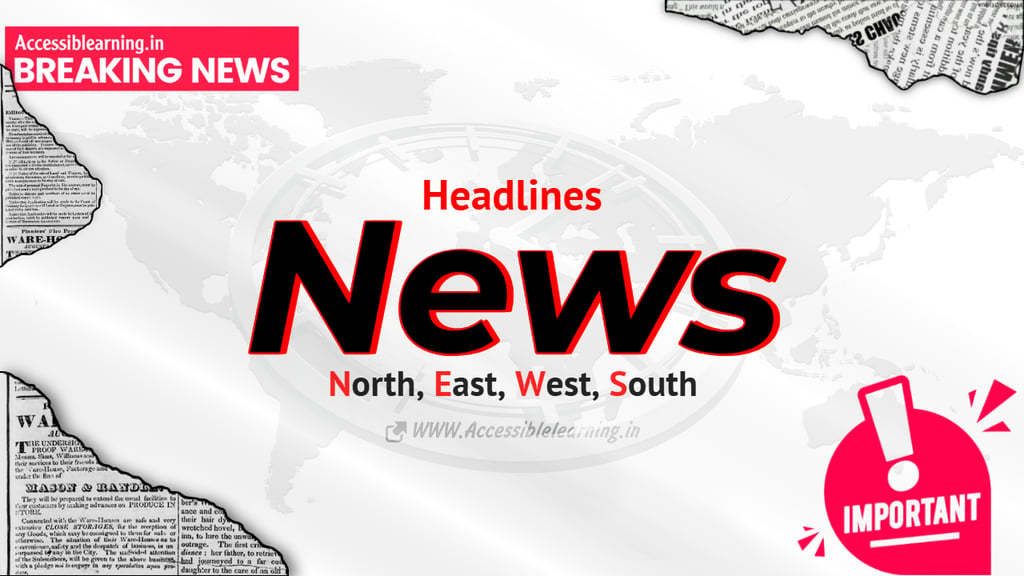
Global Events That Shaped the World Last Week (July 27–August 2, 2025)
Explore the top global headlines from last week, including U.S. trade policies, humanitarian crises, AI regulation, volcanic eruptions, and diplomatic shifts. A concise yet deep dive into world-changing developments—excluding entertainment.
NEWS/CURRENT AFFAIRSGLOBAL ISSUESNEPOTISM/SOCIAL ISSUES
---
8/4/20255 min read


Last week, the world was anything but quiet. From sweeping trade decisions in the United States to diplomatic tremors in the Middle East, the international stage was alive with events that will likely shape policy, economies, and societies in the weeks and months ahead.
Whether it was AI regulation in Europe, military accidents, healthcare strikes, or climate-related emergencies, every story had one thing in common—it mattered deeply to real people.
U.S. Triggers Global Market Turmoil with Sweeping Tariffs
In a bold and controversial move, former President Donald Trump, now the Republican nominee for 2025, issued an executive order last week imposing new tariffs on over 60 countries. Affected nations include India (25%), Canada (35%), Taiwan (20%), and South Africa (30%), among others.
The sweeping tariffs—ranging from 10% to 41%—rattled investors globally, causing a massive sell-off in stock markets, tumbling bond yields, and sparking fears of renewed trade wars and inflation.
On top of that, the U.S. July jobs report showed alarming signs of slowdown. Only 73,000 jobs were added (well below expectations), the unemployment rate rose to 4.2%, and prior months' figures were revised downward by over 258,000 jobs. The unexpected economic cooling has increased pressure on the Federal Reserve to cut interest rates.
In a controversial follow-up, Trump fired the U.S. Bureau of Labor Statistics commissioner, accusing the agency of data manipulation—raising concerns about the politicization of economic institutions.
Gaza Faces Famine While Aid Access Deteriorates
The humanitarian crisis in Gaza has reached new depths. According to UN agencies, famine conditions are emerging in northern and western Gaza, where tens of thousands of Palestinians are facing starvation due to continued military operations and restricted access to humanitarian aid.
Despite Israeli claims of “daily tactical pauses” for aid delivery, strikes reportedly continue along key access routes, placing civilians—and humanitarian convoys—in extreme danger.
UN officials revealed that over 1,400 Palestinians have died in recent weeks while simply searching for food and water. Aid workers are warning that unless immediate international intervention occurs, a full-scale famine is imminent.
UN Warns of Civilian Deaths in Ukraine Amid Russian Strikes
Last week, Ukraine faced one of its most devastating attacks in months. Russian missile and drone strikes targeted multiple cities, resulting in dozens of civilian deaths, including children and pregnant women.
The UN’s top humanitarian official issued a strong appeal for restraint, calling on both Russia and Ukraine to protect civilians and abide by international law. A special emergency session of the UN Security Council was held on August 1 to address the growing toll of the conflict.
The attacks mark a grim reminder that despite fading headlines, the Russia-Ukraine war remains active and deadly—with no diplomatic resolution in sight.
Recognition Movement for Palestinian State Gains Traction
A historic shift appears to be underway in global diplomacy. Following a powerful ruling by the International Court of Justice (ICJ) that declared Israel’s occupation of Palestinian territories illegal, more countries are formally recognizing Palestine as a sovereign state.
Nations such as Ireland, Spain, Norway, Jamaica, and Barbados have already issued official declarations. France, Canada, and Australia are reportedly preparing to follow suit—possibly before the September 2025 UN General Assembly.
Experts suggest this could become a turning point in the Israeli-Palestinian conflict, as international law and global opinion begin to realign, pressing a path toward resolution.
Violence in Mozambique Sparks Fresh Displacement Crisis
In northern Mozambique’s Cabo Delgado province, renewed violence by armed insurgent groups has displaced tens of thousands of people. Aid agencies are struggling to manage the surge in humanitarian needs, including food, shelter, and medical assistance.
This latest wave of conflict has also raised the risk of cholera and malaria outbreaks among displaced populations. The UN and humanitarian NGOs are calling for urgent international support, as local infrastructure buckles under pressure.
Iran Suffers Deadly Missile Accident During Naval Drill
In a tragic mishap, Iran’s navy accidentally struck its own support vessel, the Konarak, during a training exercise—killing at least 19 sailors, injuring around 15, and leaving others missing. The missile had been intended for an unmanned target, highlighting grave safety failures and raising concerns about military procedures under growing regional tension.
EU Launches Landmark AI Regulation Bill, Sets Global Precedent
The European Union formally enacted its comprehensive AI Act, a first-of-its-kind regulation that emphasizes safety, transparency, accountability, and oversight for AI developers. The law includes penalties for non-compliance and the establishment of an EU AI watchdog—positioning Europe as a global leader in ethical AI governance.


Haiti’s Crisis Deepens Amid Soaring Gang Violence
Haiti's humanitarian situation worsened dramatically as organized gangs intensified control over 85% of Port-au-Prince, leading to widespread displacement. Last year alone, over 5,600 people were killed in gang-related violence. Authorities have responded with drone strikes targeting gang strongholds, but the collapse of public services continues to fuel urgency for international intervention.
WHO Member States Seal Legally Binding Pandemic Preparedness Pact
After years of negotiation, WHO member countries agreed to a legally binding treaty to bolster global pandemic preparedness, including improved coordination, diversified research capacity, and stronger health systems. Despite the U.S.’s earlier exit from negotiations, the agreement is seen as a major step forward for global public health resilience.
Kenya Inaugurates Africa’s Largest Solar Power Complex
Kenya celebrated the opening of Africa’s largest solar farm, set to provide clean energy to over one million households. This milestone underscores a pivotal shift toward renewable energy across the continent and models large-scale solar deployment for other nations confronting energy insecurity.
Thailand–Cambodia Border Clashes Escalate as UN Demands Ceasefire
Fighting between Thailand and Cambodia intensified, with clusters of artillery, rockets, and allegations of munitions exchanges along contested borders. The UN called for an immediate ceasefire as more than 30 deaths and over 1.6 lakh displaced were reported, and diplomatic tensions rose sharply. Leaders are now preparing to meet under international mediation.
IMF Flags Trade Shock Risks from U.S. Tariffs
The International Monetary Fund issued a stark warning that President Trump’s sweeping new tariffs are damaging global economic growth and stoking inflation. Although 2025 GDP growth forecasts were modestly revised upward to ~3%, the IMF underscored “policy uncertainty” and urged central bank independence amid pressure on the Fed to cut rates.
U.S. Readies Deportation Funding for Costa Rica
According to leaked documents, the U.S. is preparing to fund deportation operations in Costa Rica as part of a broader regional migration control strategy. This marks a significant escalation in U.S. immigration policy and could redefine Central American migration dynamics.
Chile Tragedy: Rescue Efforts Underway After Mine Collapse
A collapse at the El Teniente copper mine in Chile trapped five workers in unstable tunnels. Efforts continue to rescue them, while the accident underscores persistent safety concerns in one of the world’s largest copper operations—critical in the global energy transition supply chain.
Nigerian Nurses End Strike with Government Deal
In Nigeria, nurses called off a prolonged nationwide strike after reaching an agreement with federal authorities. The resolution came after pressure mounted over dwindling healthcare services, highlighting ongoing funding and staffing crises within Africa’s most populous nation.
Russia Cancels Tsunami Warning as Volcano Erupts in Kamchatka
An eruption of a dormant volcano in Russia’s Kamchatka Peninsula triggered an initial tsunami warning that was later called off. The incident raised safety concerns for coastal communities and points to gaps in regional disaster preparedness and early-warning systems.
Russia Passes Law Criminalizing “Extremist” Searches
The Russian government has enacted legislation penalizing online searches deemed “extremist.” This intensifies concerns about government censorship and curbs on civil liberties, drawing criticism from international rights groups and free-speech advocates.
These stories from around the globe reflect not just momentary headlines but pivotal shifts in how countries govern, how people survive, and how systems respond to stress—economic, political, and humanitarian.
In a time of constant change, staying informed about global developments isn't just important—it's essential. From tech regulations that could affect the future of AI to grassroots survival in conflict zones, last week reminded us that the world is increasingly interconnected and that what happens in one region often echoes across continents.
As always, the value of awareness lies in what we choose to do with it.
Subscribe to our newsletter
All © Copyright reserved by Accessible-Learning
| Terms & Conditions
Knowledge is power. Learn with Us. 📚


